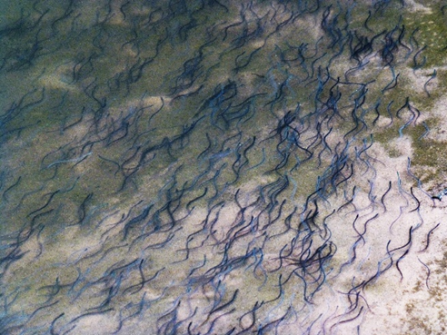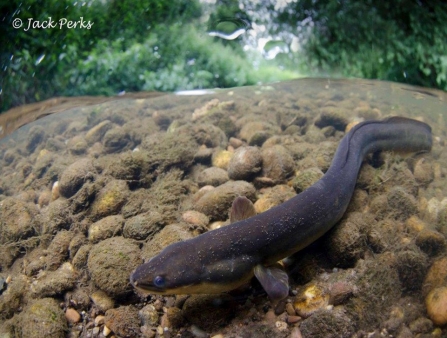
Whilst eels don’t usually feature in people’s top ten favourite wild species, they are an important part of the natural ecosystem due to their habit of feeding on dead and decaying animals, helping to recycle nutrients. Eels themselves are an important food source for otters and birds such as herons and have an amazing lifecycle. Having been spawned around 3500 miles away in the Sargasso Sea near Bermuda, they spend around 18 months floating on ocean currents towards the coasts of Europe and North Africa before entering river systems in spring, often utilising Spring Tides to aid their journeys.

